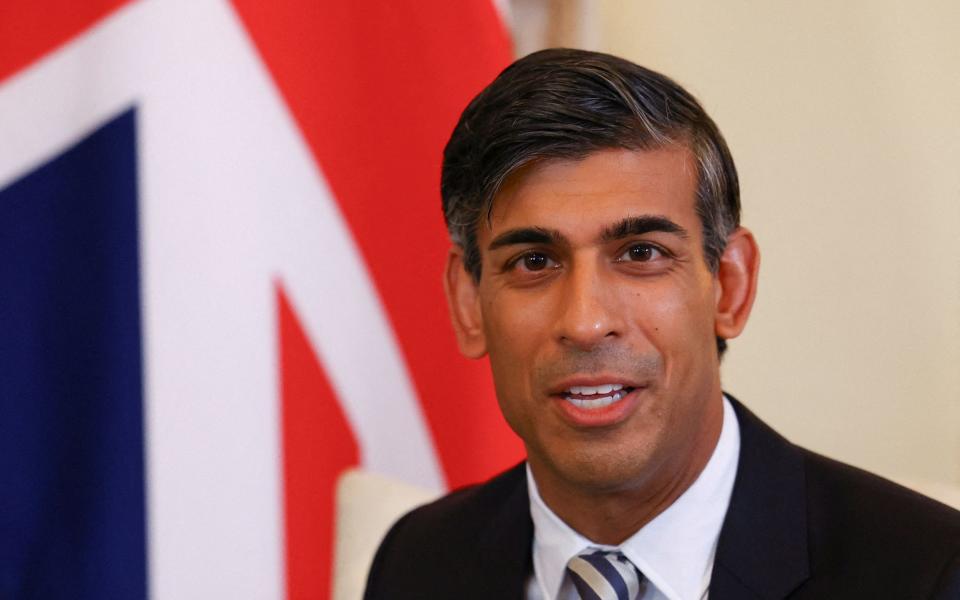Sunak’s stealth tax raid equivalent to extra 6p on income tax, IFS says

Rishi Sunak’s stealth tax raid is equivalent to a 6 pence rise in income tax and will cost the public an extra £52bn a year by 2027, according to a leading think-tank.
The Institute for Fiscal Studies (IFS) warned that a six-year freeze on income tax thresholds would see the number of people paying the higher or top rate of tax double to 8.9 million in a decade.
One in six British adults will be paying the higher or additional rate of income tax by the end of the decade, compared with 4pc in the 1990s.
The change is due to so-called “fiscal drag”, which pushes people into higher income tax brackets as pay rises.
Tax allowances usually rise in line with inflation but were frozen by Mr Sunak in 2021 when he was chancellor. The freeze was originally estimated to raise £8bn a year by the end of the parliament and scheduled to last until 2026.
However, soaring inflation since then has seen tax income from the policy surge as the number of people caught by the freeze balloons.
Jeremy Hunt extended the freeze until 2028 and widened it to include national insurance contribution thresholds.
Paul Jonhson, IFS director, called the leap in the tax burden “extraordinary”.
The think tank said: “Other ways to raise roughly £52bn of revenue include increasing both the basic and higher rate of income tax by 6p, or increasing the main rate of VAT from 20pc to 26pc.”
The IFS analysis comes as Mr Sunak faces pressure to cut taxes before the next election, with the Prime Minister presiding over the biggest increase in the tax burden in any parliament since the Second World War.
However, Mr Johnson said the Government was in a “horrible fiscal bind” with no room to cut taxes or increase public spending.
He said: “With taxes at record levels, and government revenues forecast to exceed non-interest spending for the first time in a generation, you might expect plenty of room for either tax cuts or spending increases.
“But poor growth and very high spending on debt interest over the next few years mean that the national debt is stuck at close to 100pc of national income, even with tight spending settlements and further big tax rises in the pipeline. The price of our high levels of indebtedness, failure to stimulate growth, and high borrowing costs is likely to be a protracted period of high taxes and tight spending.”
The think-tank warned that debt interest spending was now expected to settle at its highest sustained level since the mid 1980s as interest rates remain higher for longer, representing a £30bn-a-year permanent increase.
Mr Hunt vowed last week to get the tax burden down but the Chancellor admitted he faced “difficult decisions” in his Autumn Statement next month.
A Treasury Spokesman said: “After we stepped into support families and businesses during the pandemic, Putin’s invasion pushed up inflation and interest rates – meaning we spent twice as much on servicing our debt last year as the year before.
“To secure our public finances we must stick to our plan which is on track to halve inflation, reduce public sector waste and get debt falling.
“Our tax burden remains lower than any major European economy – and by raising personal thresholds over the past decade we have taken three million people out of paying tax altogether.”

 Yahoo Finance
Yahoo Finance 